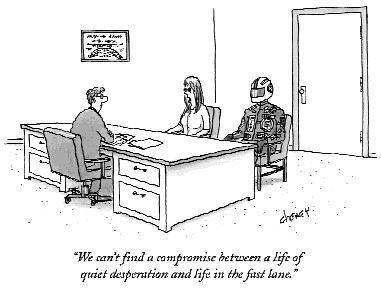Century Marks

Trash talk: Young people in Lahore, Pakistan, who had grown tired of their government’s incompetence and their parents’ complaints about it decided to do something. So they started taking shovels into the streets every Sunday to clean up trash. In part, they’re trying to set an example. “The rich don’t care, the poor can’t do anything, so it’s up to the middle class to make the change,” said one of the young men. “We have to lead by example” (New York Times, May 19).
Exodus: Over 2 million Iraqis of various religions have left the country since the 2003 invasion. The Christian community has especially been decimated. In 1987, the last year of an official Iraqi census, there were 1.4 million Christians in the country. Estimates of the current figure go as low as 400,000. Most of those who fled have no intention of going back. “Iraq as we once knew it is over,” says one Iraqi Christian in Damascus, who is waiting to resettle in Sweden. “For us there is no future there.” Christians historically made up a significant portion of the middle class and held key professional jobs as doctors, engineers, academics and civil servants (AP).
Chimps and change: The DNA blueprints of humans and chimpanzees are nearly 99 percent identical. Brain size has something to do with it, but that only explains an outcome and not how the human brain came to be larger than that of the chimpanzees. Scientists are now studying where the DNA patterns diverged in the evolutionary process. The research is indicating that humans have several distinctive genetic sequences that contributed to the development of the cerebral cortex, aid in speech and enable the digestion of starch in foods—which makes it possible for humans to eat a greater variety of foods (Scientific American, May).
Sin in the Bible Belt: Four geography graduate students at Kansas State University have mapped out the hot spots in the country for Christianity’s seven deadly sins—lust, gluttony, greed, sloth, wrath, envy and pride. Their data show that certain places in the Bible Belt burn hotter than Las Vegas, known as “Sin City.” The map refers to such indicators as the rate of sexually transmitted diseases (a sign of lust), the rate of theft (envy) and the rate of violent crime (wrath). Not all of the correlation methods are convincing. For example, the students measured sloth by comparing total expenditures on arts, entertainment and recreational activities to employment per capita (RNS).
Whose grace? Gracia Grindal points out that the hymn “Amazing Grace” never explicitly names Jesus. This may be one reason why it has so readily been adopted by people other than Christians; they see in it a statement of general grace, rather than a witness to the grace of Jesus Christ as John Newton, the hymn writer, most certainly intended. Grindal says that someone hearing the hymn might wonder whose grace is being referred to and in searching discover Jesus, but she thinks that is a stretch (Word & World, Spring).
Snow job: An atheist admitted to a believer that he had recently gotten lost in the Alaskan wilderness during a blizzard and prayed: “God, if there is a God, I’m lost in this blizzard, and I’m gonna die if you don’t help me!” The believer responded, “Well, then, you must believe now. After all, here you are, alive.” The atheist rolled his eyes and said, “No, man, all that happened was that a couple Eskimos just happened to come wandering by, and they showed me the way back to the camp” (David Foster Wallace, This Is Water, Little, Brown).
Seventh heaven: In order to serve satellite congregations, megachurches in Houston, Dallas, San Antonio and elsewhere have purchased helicopters and installed heliports so their pastors can move quickly from one site to the next. TPJ Magazine (May) reports that a used helicopter can cost $500,000 and a new one $2 million.
Outside the gate: Three British doctors started a hunger strike last month in Egypt because they’ve been denied access to Gaza via the Rafah crossing. Their aim is to start a cardiac surgery unit in Gaza City to train medical students and junior doctors. They want the British embassy to pressure Egypt to grant their passage (Guardian, May 19).




